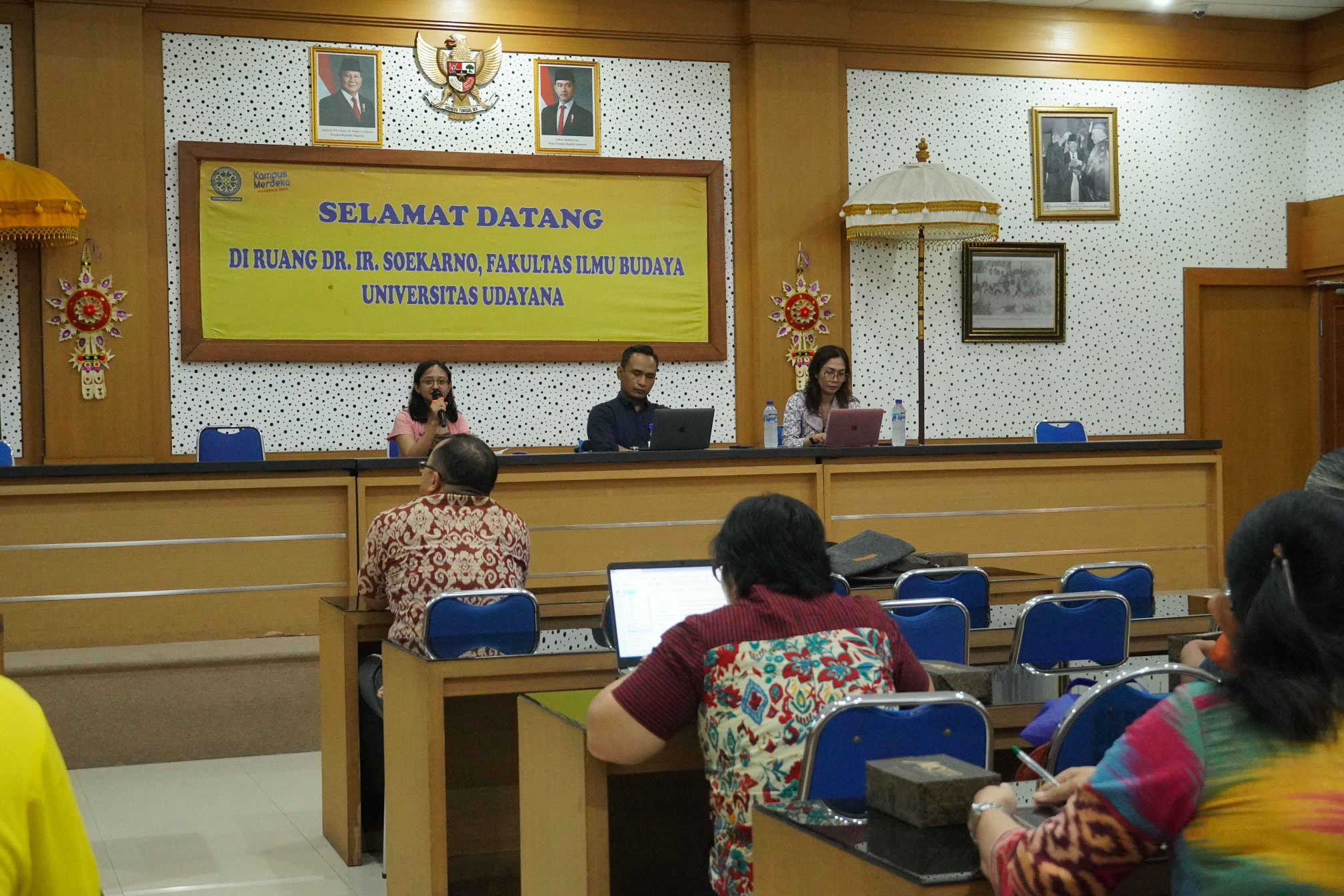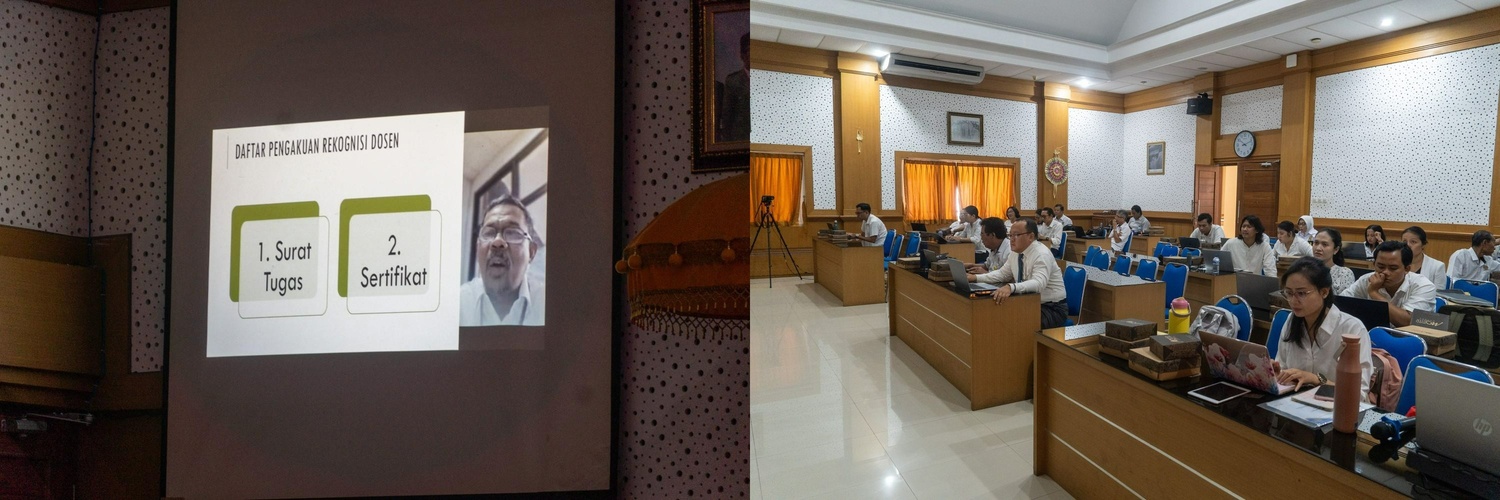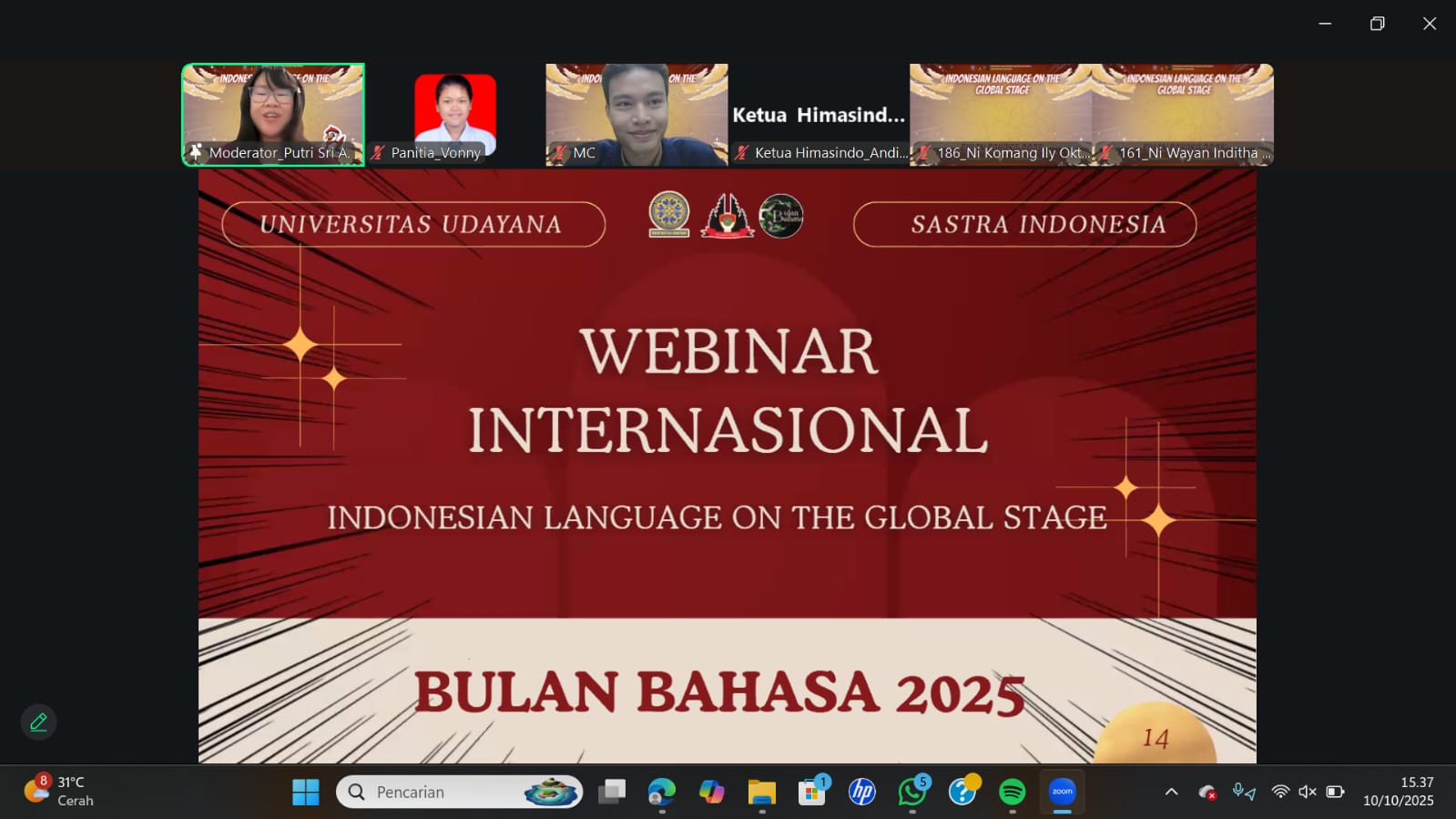Faculty of Humanities, Udayana University held Service Standard Improvement Training to Achieve a Free Corruption Zone
Denpasar, October 10, 2025 – The Faculty of Humanities, Udayana University held a Service Standard Improvement Training and Service Standard Feasibility Test for all service providers within Faculty of Humanities. The event, held on Friday, October 10, 2025, was intended to strengthen the commitment to achieving the Integrity Zone and Free Corruption Zone designations. The activity was attended by Vice Dean I, Dr. I Gede Oeinada, S.S., M.Hum., representing the Dean, and was attended by all ranks, from the Chair, Vice Chair, Secretary, and Integrity Zone Field Manager, Program Study Coordinators, Educational Staffs, to Alumni representatives. In his opening remarks, Deputy Dean I for Academic and Planning Affairs, Dr. I Gede Oeinada, S.S., M. Hum., emphasized that the current focus of bureaucratic development is on Field 6 of Integrity Zone, namely Improving the Quality of Public Services. He expressed two major expectations from this activity: “First, that this activity will generate fresh ideas and comprehensive strategies as well as a strong spirit in improving public services. Second, that the public service satisfaction survey at the Faculty of Humanities will experience a significant increase,” he said. With the achievement of this, it is hoped that the Faculty of Humanities can achieve the title of Integrity Zone towards a Free Corruption Zone.
The Manager of Services Division's report, represented by Vice Dean III, Dr. Ni Ketut Puji Astiti Laksmi, SS., M.Si., said that this training aims to provide an introduction and in-depth understanding of public services in accordance with the duties of Division 6. “The hope is that we will receive input and gain insight so that the development of an integrative bureaucracy at the Faculty of Humanities can be carried out properly,” she explained. The first material was delivered by Dr. I Wayan Gayun Widhama, S.E., M.Si. He reviewed the Faculty of Humanities' journey in developing Integrity Zone, where the Faculty of Humanities at Udayana University is currently ranked 4th with the main obstacle being in the area of administration. “The Integrity Zone is not an additional task, but part of our daily tasks that must be integrated,” he said. He also stressed the importance of viewing students as consumers who must be served well. By improving performance, accountability, and strengthening human resources, Faculty of Humanities has the potential to enter the top 3 Integrity Zone rankings within the University of Udayana. The second material was presented by Ni Luh Eka Lestari, S.S., M.Ap., from the Udayana University Bureaucratic Reformation Team. She explained the legal basis and urgency of Bureaucratic Reformation and public service policies. “Service Standards are important because they provide guarantees and certainty for the community, as well as producing quality services,” she explained. In her presentation, she also explained the fundamental difference between Service Standards, which focus on service requests, and Standard Operating Procedures, which regulate the execution process. The two must complement each other and be implemented in parallel, not as an additional load.
The activity continued with a discussion and question-and-answer session moderated by Ibu Citra, as well as an offline and online Public Review of Service Standards. This public review aims to filter and refine the existing draft Service Standards based on input from all stakeholders. This strategic activity becomes a concrete step taken by the Faculty of Humanities, Udayana University, in encouraging the transformation of public services towards more accountable, transparent, and community-oriented governance, as a stepping stone towards the Integrity Zone and Corruption-Free Zone. This activity also showed the commitment of the Faculty of Humanities, Udayana University, in realizing quality services with national standards. Through this public review, Faculty of Humanities, Udayana University, wishes to increase the active participation of the academic community and the public in monitoring and developing services that are integrity-based and sustainable




UDAYANA UNIVERSITY